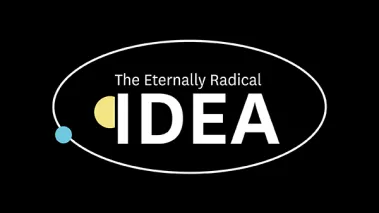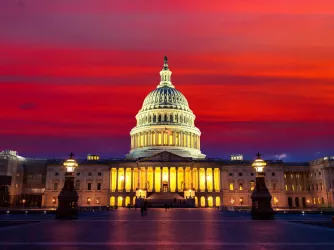Table of Contents
Free Speech, Dangerous Speech, and Scootergate

In the aftermath of the unconscionable events that took place in Arizona this weekend, there's been a lot of heated discussion about tone, rhetoric, and the consequences of "inflammatory" speech. Unfortunately, commentators have occasionally confused their anger and condemnation of some of the more overheated rhetoric in our political culture with an argument against free speech itself.
There is irony in this because free speech exists in large part so we can criticize, discuss, and parse through issues--including the accuracy of rhetoric, the tone of discussion, and the consequences of ideas. While a discussion about tone, rhetoric--and, most of all, the wisdom of different political arguments--should always be welcome in a free society like ours, to scapegoat the First Amendment is to fundamentally misunderstand why we have free speech in the first place.
While there is a deep and elegant philosophical rationale explaining a society's need for robust free speech (and here I will once again plug Jonathan Rauch's awesome speech on this topic), free speech is also a deeply practical rule of engagement for a society. One reason why free speech makes so much sense is because any system that allows for censorship must place an actual, flawed human being in charge of deciding what can and cannot be said. Once the power to censor has been granted, it follows like night follows day that those in charge will be more likely to use this power to punish people with points of view that they simply dislike than those with points of view they favor.
What's more, if there were no general rule protecting free speech, the first thing to go would be any speech critical of those in charge of deciding what speech is free. In other words, many people seem to have an unwritten rule: "I believe in free speech and all, but I draw the line at criticizing me."
Consider the case of Jacob Lovell, a student at the University of Georgia (UGA) who was sick and tired of the lack of campus parking for his scooter. UGA, recognizing that many students were frustrated with parking services on campus (imagine that!), set up a website to gather suggestions and complaints from students. Lovell sent a funny e-mail (seriously, I laughed out loud the first time I read it) to parking services complaining about the lack of scooter parking and suddenly found himself facing charges more suitable to a supervillain than an agitator for scooter parking.
Thankfully, due to pressure from my organization, the Foundation for Individual Rights in Education (FIRE), the school quickly backed down, but do not believe for a second that this is an isolated incident. Abuses of administrative power are commonplace on campus, and we have documented many gross abuses of student rights in videos which you can view on YouTube or in my dozens of previous columns on campus censorship.
Indeed, back in 2005, my colleague Azhar Majeed and I authored a column at InsideHigherEd.com warning about the haphazard invocation of "threats" as a rationale to punish student and faculty speech.
While any discussion on the nature and importance of free speech and its relationship to provocative or inflammatory rhetoric is necessarily sprawling and vast, my main point today is simply to say that we must understand that any time you place limitations on freedom of speech, the likelihood is extremely high that it will quickly be abused to censor viewpoints disfavored by those in power.
Our nation has survived many challenges precisely because we are able to talk things out. So as we have this national discussion about tone, rhetoric, and political ideology, it is crucial that we not undermine the very principles that allow this discussion to happen.
Recent Articles
FIRE’s award-winning Newsdesk covers the free speech news you need to stay informed.

One day after FIRE lawsuit, Congress passes changes to filming permits in national parks

VICTORY: FIRE lawsuit leads California to halt law penalizing reporters, advocates, and victims who discuss publicly known information about sealed arrest records

O holy fight: New Hampshire Satanic Temple statue threatened by more than vandals
